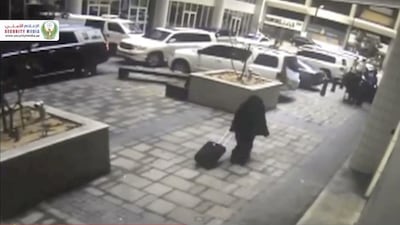The murder of an American teacher in Abu Dhabi by a veiled woman has sparked a debate in the UAE about the niqab, which in turn has highlighted an intolerance of differing perspectives.
Emirati society has been going through rapid changes that have brought with them many new ideas and practices. Our society is no longer homogenous and with people now being highly educated and exposed to international cultural norms, will never again be closed.
Social media has helped bring this previously hidden issue to the surface. Social networks – and particularly Twitter – allow people of differing opinions to meet and discuss issues publicly. However, any observer would see that many of these conversations, especially those conducted in Arabic, have not been constructive.
Something that should be understood by everyone is that humans are subjective creatures and each individual views the world through their own personal interpretations. Too often, we unconsciously look only at information confirming what we already believe – and then look for the chance to convince ourselves and others.
An example of this is the call by some writers and social media users to ban the niqab, despite its widespread use by women in the UAE. The editor-in-chief of a well-known Arabic-language newspaper wrote a column right after the first video was released asking authorities to ban the niqab and refused to even discuss the issue.
All those who called for a ban on the niqab for security reasons used the argument that it “is cultural rather than Islamic”. But by saying this, they fail to realise they are favouring their own views over all others. Thus, they indirectly suggest that the opinion of those who see it as Islamic – or even as a personal choice – should not be respected or considered.
The police’s quick identification of the suspect showed the investigation was not severely inhibited by the fact that the attacker covered her face when committing the crime.
In fact, criminals all over the world have long used all sorts of methods to disguise their identities while committing crime. These include masks, make-up, hats, wigs and oversized sunglasses etc. Nobody has ever called for these to be banned for security reasons.
On the other hand, those who argued against the ban cited religious texts that imply the niqab is Islamic often then fail to mention any contrary evidence from Islamic texts. In this, they are not so different to those who focus on the niqab as the main issue in this crime. Both are biased.
But regardless of these arguments, the way many people from each side reacted to the opposing point of view is problematic and concerning.
Many people from both sides showed little respect to those who disagreed with them. They judged them, disrespectfully attacking their personal choices and calling them bad names.
For example, the people who were against the niqab labelled those who support it as “backward”, “uneducated” and “extreme”. The other group was slated as “liberals”, “immodest” and “having no morals”. Few of the arguments presented focused on tackling the merits of the other argument and instead attacked the character of the people making them.
We need to acknowledge that this is a problem in our society, just as it is in many others. We need to have a discussion about it, to study it deeply so we can understand it and then fix it.
During my recent discussion with other writers on this topic, we agreed that the problem starts in the home and extends to school, where children spend most of their time. How many parents focus on teaching their children to be open to disagreement? How many of them encourage the diversity of ideas even inside the house?
Another question is whether our education system instils the acceptance of different opinions in young children. Do teachers emphasise the importance of respecting other points of views, even those with which ones strongly disagrees, when dealing with students? How much is done in a typical classroom to encourage respectful and constructive debate?
These are some of the many questions we need to tackle at the source. We need to teach our children to be more open to diversity within our society and not just to those outside it.
The hideous crime on Reem Island did not just shock UAE society as a whole but also highlighted important secondary issues that deserve more attention.
Lack of acceptance of others is thought to have prompted this murder of an innocent person. That same attitude also creates polarisation within UAE society and we need to address the issue before it’s too late.
aalmazrouei@thenational.ae
@AyeshaAlmazroui

